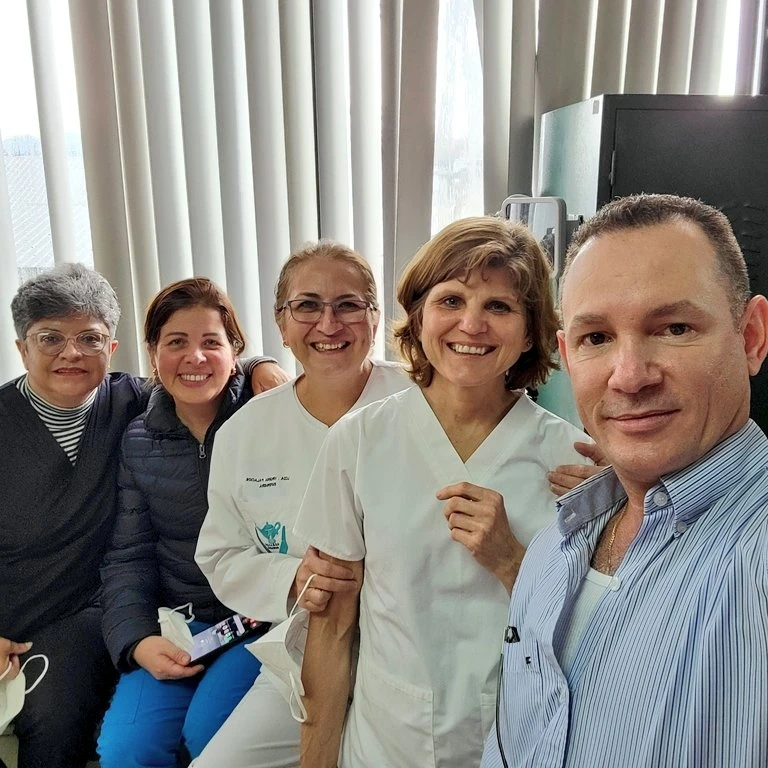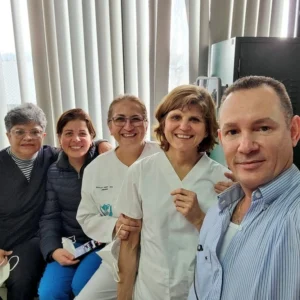Hey there! Have you ever wondered about the crucial role that physical therapists play in our healthcare system? Physical therapists are healthcare professionals who specialize in improving mobility, restoring function, and managing pain through exercise, manual therapy, and patient education. They are like everyday heroes, helping individuals recover from injuries and conditions that affect their ability to move and live life to the fullest.
In this article, we’ll explore the fascinating world of physical therapy, highlighting the global demand for these professionals, the role and benefits they provide, international opportunities, the impact they have in developing countries, and the importance of lifelong learning in their field. So, let’s dive in and discover the amazing work that physical therapists do!
The Global Demand for Physical Therapists
Physical therapists play a crucial role in healthcare systems around the world. As the demand for quality healthcare services continues to grow, so does the need for skilled and dedicated physical therapists. Let’s dive into the global demand for physical therapists and understand why their expertise is in such high demand.
According to the World Health Organization, approximately 7.5 million people worldwide are in need of physical therapy services. This staggering number is a clear indicator of how significant the demand for physical therapists is on a global scale. People of all ages and backgrounds require the assistance and expertise of physical therapists to recover from injuries, manage chronic conditions, and improve their overall quality of life.
Role and Benefit of Physical Therapists
Physical therapists play a crucial role in helping individuals recover from injuries, improve their mobility, and manage chronic pain. They have the knowledge and skills to design personalized treatment plans that cater to each individual’s unique needs. Here are some key benefits and roles of physical therapists:
Rehabilitation Aid
Physical therapists are experts in designing rehabilitation programs to help patients regain their strength and functionality after an injury, surgery, or illness. They assess the patient’s condition and develop specific exercises and techniques to improve mobility, increase flexibility, and restore proper body mechanics. By working closely with patients, physical therapists help them regain their independence and confidence in their physical abilities.
Mobility Improvement
One of the primary goals of physical therapy is to improve mobility. Physical therapists use a variety of techniques, such as manual therapy, stretching exercises, and balance training, to help patients regain their ability to walk, climb stairs, or perform daily activities. They also provide assistive devices, like canes or walkers, when necessary, to aid in mobility.
Chronic Pain Management
Physical therapists play a vital role in managing chronic pain conditions, such as arthritis, fibromyalgia, and back pain. They use a combination of therapeutic exercises, manual therapy techniques, and modalities like heat or cold therapy to reduce pain, improve joint mobility, and enhance overall function. Physical therapists also educate patients on self-management techniques and lifestyle modifications to alleviate pain and improve their quality of life.
Physical therapists work with a diverse range of patients across different age groups and backgrounds. They provide valuable services to individuals with various medical conditions, including stroke, multiple sclerosis, Parkinson’s disease, and sports-related injuries.
Physical therapists are highly-skilled professionals who are committed to maximizing their patients’ potential for movement and function. Their expertise and personalized approach greatly contribute to the overall well-being and quality of life of individuals seeking their assistance.
In addition to their essential roles in patient care, physical therapists also contribute to research, education, and community outreach. They stay updated with the latest advancements in their field, ensuring that they provide the most effective and evidence-based treatments to their patients.
As physical therapy continues to evolve, new techniques, technologies, and research emerge, making it essential for physical therapists to engage in lifelong learning.
In the next section, we will explore the importance of lifelong learning for physical therapists and how it impacts their practice.
Physical Therapists and International Opportunities
If you’re a physical therapist looking to explore new horizons and make a difference beyond your own borders, you’ll be pleased to know that there are numerous international opportunities available to you. Whether you’re seeking to gain experience, make a lasting impact, or simply satisfy your wanderlust, these opportunities can offer you a unique chance to grow both personally and professionally. Let’s take a closer look at the exciting world of physical therapy abroad.
Over 100 Countries Offering Programs
When it comes to international opportunities for physical therapists, the possibilities are truly endless. More than 100 countries around the globe offer programs and opportunities for skilled professionals like yourself to contribute to the health and well-being of communities worldwide. These opportunities can range from short-term volunteer assignments to long-term employment contracts, depending on your preferences and goals.
One popular way for physical therapists to embark on international adventures is through organizations such as Abroader View. These organizations specialize in connecting healthcare professionals with meaningful opportunities abroad. They work with local clinics, hospitals, and rehabilitation centers to match physical therapists with placements that align with their skills and interests.
These international opportunities not only allow you to make a difference in the lives of those in need, but they also provide you with a unique cultural experience. You’ll have the chance to immerse yourself in different languages, customs, and healthcare systems, broadening your perspective and enhancing your ability to adapt in various settings.
“Working as a physical therapist in a different country provides an opportunity to learn new techniques, gain exposure to unique patient populations, and develop a deeper understanding of global healthcare systems. It can be a truly transformative experience.” – Abroader View
By working as a physical therapist abroad, you can expand your professional network and build lasting relationships with healthcare professionals from around the world. These connections can be invaluable for future collaboration, knowledge exchange, and career advancement. Additionally, the skills and experiences you gain during your time abroad can make you a more competitive candidate in the job market when you return home.
Furthermore, international opportunities for physical therapists can serve as a springboard for personal growth and self-discovery. Living and working in a foreign country challenges you to step outside of your comfort zone, adapt to new environments, and develop a greater sense of resilience. You’ll become more culturally aware, empathetic, and adaptable – qualities that can benefit you both personally and professionally.
So, if you’re a physical therapist with a desire to explore the world and make a difference, don’t hesitate to explore the many international opportunities available to you. Whether you choose to volunteer your skills, contribute to research projects, or work in a clinical setting, you’ll undoubtedly have a rewarding experience that will leave a lasting impact on both yourself and the communities you serve. Embrace the chance to aid mobility and restore hope internationally – it’s an incredible journey worth embarking on.
Impact of Physical Therapists in Developing Countries
In developing countries, physical therapists play a crucial role in improving the quality of life and aiding disabled individuals. These skilled professionals bring hope and much-needed support to communities that may have limited access to healthcare resources. Let’s explore the significant impact physical therapists have in developing countries:
Improving Quality of Life
Physical therapists are dedicated to enhancing the overall quality of life for individuals in developing countries. They work with people of all ages, from children to the elderly, providing specialized care and rehabilitation services. Here are some ways in which physical therapists make a positive impact:
- Restoring mobility: Physical therapists help individuals regain their mobility after injuries or illnesses. They design customized exercise programs and use therapeutic techniques to strengthen muscles, improve coordination, and increase flexibility.
- Enhancing independence: Through their expertise, physical therapists empower patients by teaching them strategies to perform daily activities independently. They focus on improving functional abilities, such as walking, climbing stairs, and getting in and out of chairs.
- Addressing respiratory issues: Physical therapists play a vital role in treating respiratory conditions, such as asthma or chronic obstructive pulmonary disease (COPD). They assist patients in improving their lung function through breathing exercises, chest physiotherapy, and posture correction.
- Managing pain: Chronic pain can significantly reduce a person’s quality of life. Physical therapists utilize various pain management techniques, such as manual therapy, heat and cold therapy, and electrical stimulation, to alleviate pain and improve overall comfort.
Aiding Disabled Persons
In developing countries where resources for disabled individuals may be limited, physical therapists provide invaluable assistance. They offer specialized care and support to help people with disabilities overcome challenges and lead fulfilling lives. Here are some ways in which physical therapists aid disabled individuals:
- Assistive device training: Physical therapists assist individuals in learning how to use assistive devices like crutches, wheelchairs, and prosthetic limbs. They provide guidance and education on proper technique and ensure that the devices are properly fitted for optimal functionality.
- Improving mobility: For those with physical disabilities that affect mobility, physical therapists create personalized treatment plans to address specific needs. They work on strengthening muscles, improving balance, and developing strategies to navigate obstacles effectively.
- Promoting independence: Physical therapists empower disabled individuals by teaching them skills to carry out activities of daily living independently. They focus on improving self-care abilities, such as dressing, grooming, and feeding, to enhance overall independence and self-confidence.
Physical therapists in developing countries are agents of change, making a positive impact on the lives of individuals with disabilities. Through their expertise, dedication, and compassion, they bring hope and restore a sense of normalcy to those facing physical challenges.
“Physical therapists are an essential part of the healthcare system in developing countries. Their expertise in rehabilitation and disability management is invaluable in improving the lives of individuals with physical impairments.”
The Importance of Lifelong Learning for Physical Therapists
As a physical therapist, your journey to becoming a skilled healthcare professional doesn’t stop once you graduate. In fact, it’s only the beginning. Lifelong learning is crucial in the field of physical therapy, as it allows you to stay updated with the latest research, techniques, and technologies. By continually expanding your knowledge and skills, you not only enhance your own practice but also provide better care for your patients. Here are some key reasons why lifelong learning is essential for physical therapists:
Evolution of the Field
The field of physical therapy is constantly evolving. New techniques, treatment modalities, and research findings are being discovered all the time. By engaging in lifelong learning, you can stay up-to-date with these advancements and incorporate them into your practice. This ensures that you are providing the most effective and evidence-based care to your patients.
Emerging Research, Techniques, and Technologies
Lifelong learning allows you to stay informed about the latest research studies, breakthroughs, and treatment methods in the field of physical therapy. By keeping yourself updated, you can discover new ways to address your patients’ needs and improve their outcomes. Additionally, advancements in technology continue to play a significant role in the field of physical therapy. By staying informed about new technologies, you can leverage their benefits and enhance your patients’ rehabilitation process.
Continuing Professional Development
Engaging in lifelong learning not only enhances your clinical skills but also fulfills your professional development requirements. Many countries and professional organizations have continuing education requirements for physical therapists to maintain their license or certification. By actively pursuing continuing education courses, workshops, and conferences, you can meet these requirements while also expanding your knowledge and skills.
Enhancing Patient Care
Lifelong learning directly benefits your patients. By constantly improving your skills and knowledge, you can provide better care and outcomes for your patients. You’ll be equipped with the latest evidence-based techniques, enabling you to create more effective treatment plans and interventions. By staying updated, you can adapt to different patient populations, understand their unique challenges, and tailor your treatments accordingly.
Networking and Collaboration
Lifelong learning provides opportunities for networking and collaboration with other healthcare professionals. By attending conferences, workshops, and seminars, you can meet and connect with like-minded professionals who share your passion for physical therapy. This networking can lead to valuable collaborations, mentorship opportunities, and access to new resources and research.
Remember, lifelong learning is not limited to formal education alone. It can also involve informal learning through reading professional literature, participating in online forums, and engaging in discussions with colleagues. The key is to have a curious and open mindset, always seeking opportunities to expand your knowledge and improve your practice.
In conclusion, lifelong learning is crucial for physical therapists to stay current in their field and provide the best care for their patients. By actively engaging in continuing education and staying informed about emerging research and technologies, physical therapists can enhance their skills, improve patient outcomes, and contribute to the advancement of the field. So, never stop learning and embrace the journey of lifelong learning in the rewarding field of physical therapy.
Conclusion
In conclusion, physical therapists play a crucial role in aiding mobility and restoring hope internationally. Their skills and expertise make a significant impact on improving the quality of life for individuals with disabilities and chronic conditions. As the demand for physical therapy services continues to rise globally, there are numerous opportunities for physical therapists to make a difference around the world.
Through international volunteer organizations like A Broader View, physical therapists have the chance to contribute to sustainable projects and community development while engaging in meaningful cultural exchange. These experiences not only benefit the communities they serve but also provide valuable personal and professional growth opportunities for the therapists themselves.
It is essential for physical therapists to embrace lifelong learning and stay updated with the latest research, techniques, and technologies in their field. The evolution of the field and the emergence of innovative methods can further enhance their ability to help individuals recover from injuries, improve mobility, and manage chronic pain.
If you are a physical therapist looking to make an impact globally and experience a life-changing journey, consider exploring the international opportunities offered by A Broader View Volunteers. By volunteering with A Broader View, you can provide much-needed support to communities in over 32 countries across Africa, Asia, Central America, and South America.
Remember, physical therapy is not just a profession. It is a calling to make a difference in the lives of others and restore hope. Take the leap, expand your horizons, and embark on a journey that will not only change the lives of those you help but also transform yours.
To learn more about the life-changing experiences and volunteer opportunities offered by A Broader View Volunteers, visit www.abroaderview.org.
Frequently Asked Questions
- What is the role of physical therapists?
Physical therapists are healthcare professionals who aid in the restoration and maintenance of physical mobility and functionality. They assess, diagnose, and treat individuals with various injuries, illnesses, or disabilities to help them regain functionality and improve quality of life.
- How can physical therapists aid in restoring mobility and hope internationally?
Physical therapists can make a significant impact internationally by volunteering through organizations like www.abroaderview.org. They can provide rehabilitation services, teach therapeutic exercises, educate local communities about injury prevention, and empower individuals with the knowledge and skills to improve their physical well-being.
- Why should physical therapists consider volunteering internationally with www.abroaderview.org?
Volunteering as a physical therapist internationally offers a unique opportunity to contribute to underserved communities. It allows you to gain cultural immersion, expand your professional experience, enhance your clinical skills, and make a real difference in the lives of individuals who lack access to adequate rehabilitation services.
- Do I need any specific qualifications or experience to volunteer as a physical therapist internationally?
While specific requirements may vary, it is recommended to have a degree in physical therapy and relevant experience before volunteering internationally as a physical therapist. Some organizations may also require a license or certification, as well as a commitment to cultural sensitivity and adaptability.
- How can I get involved and volunteer as a physical therapist internationally with www.abroaderview.org?
To volunteer as a physical therapist internationally with www.abroaderview.org, you can visit their website and explore the available programs. Fill out an application form, indicating your preferences and skills. Once accepted, you will receive guidance regarding the necessary preparations, including travel arrangements and visa requirements.
-
Volunteering Abroad with Medical Missions: Make a Difference Today

Join medical group trips, Nurses Without Borders, and Dentists Without Borders to make a difference in underserved communities worldwide. Learn about the countries where these programs operate and read real-life experiences from volunteers. Volunteering overseas is an excellent opportunity to make a difference in the lives of others while experiencing new cultures and forging unforgettable…
-
Embrace Overseas Service | Transform Lives Through Global Volunteerism

International Volunteering: Discover Meaningful Travel and Transform Lives with A Broader View
-
A World of Opportunities: Unveiling the Benefits of International Volunteer Programs

Discover numerous benefits of international volunteer programs and unleash a world of rewarding opportunities with our in-depth guide.



